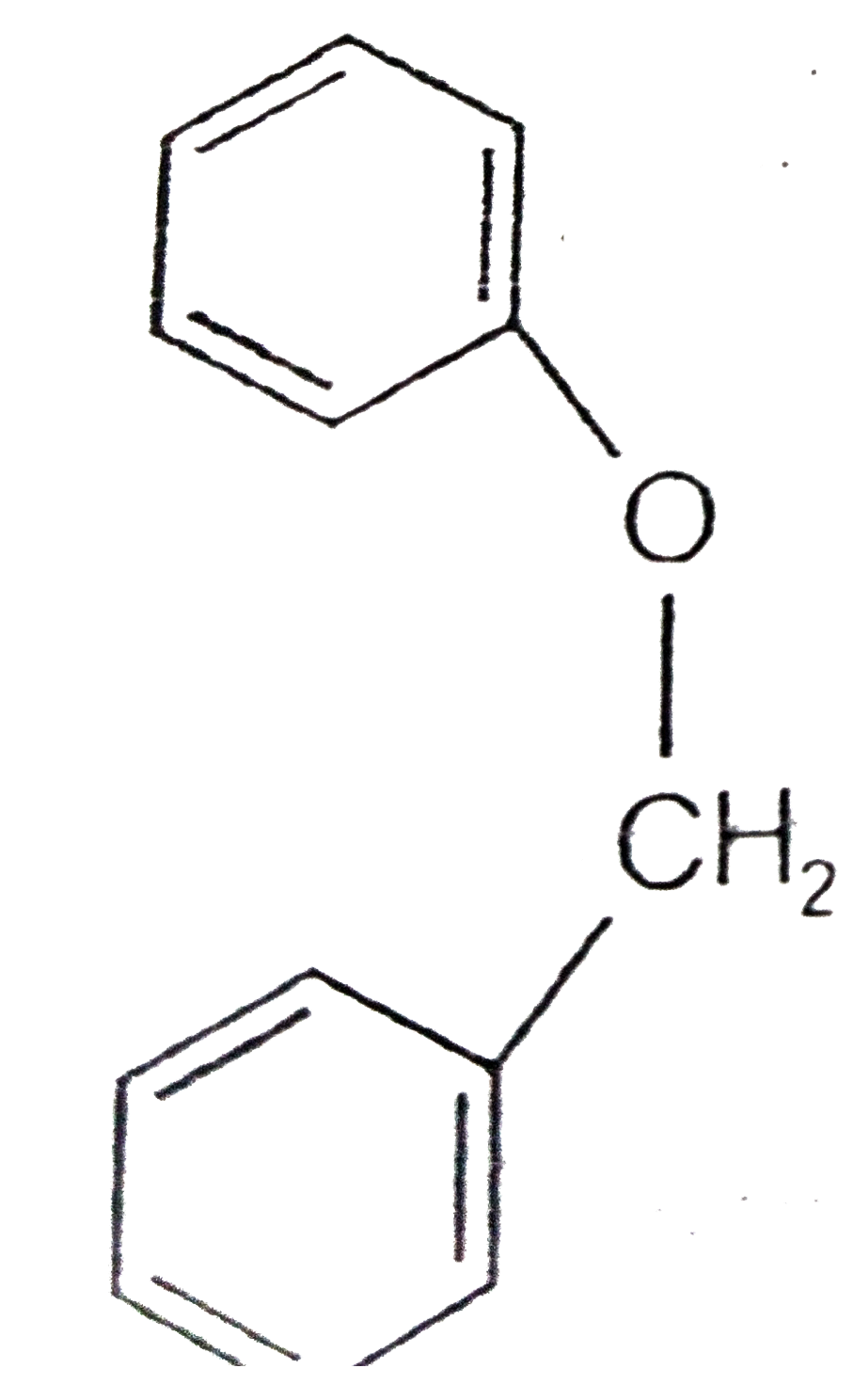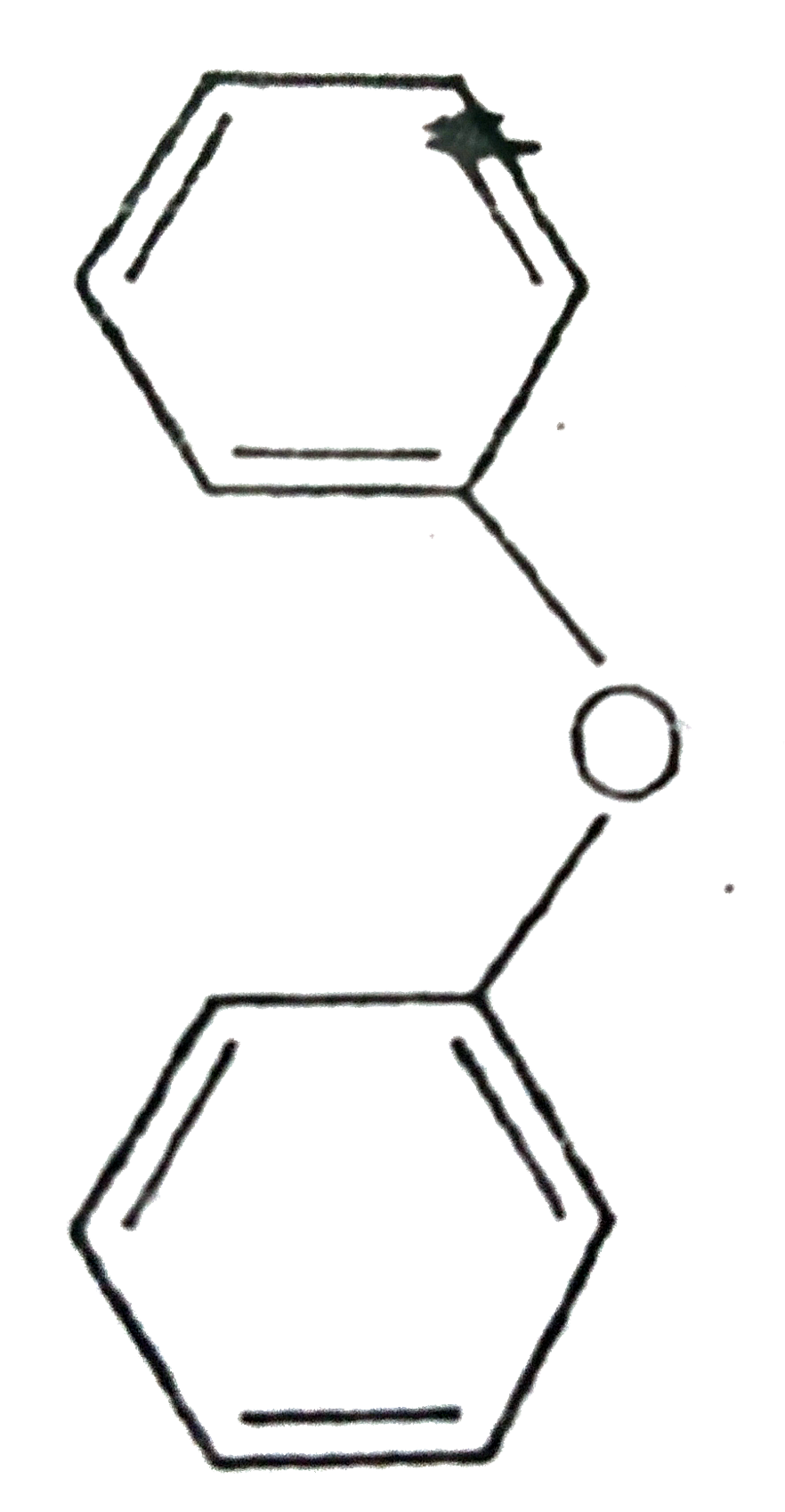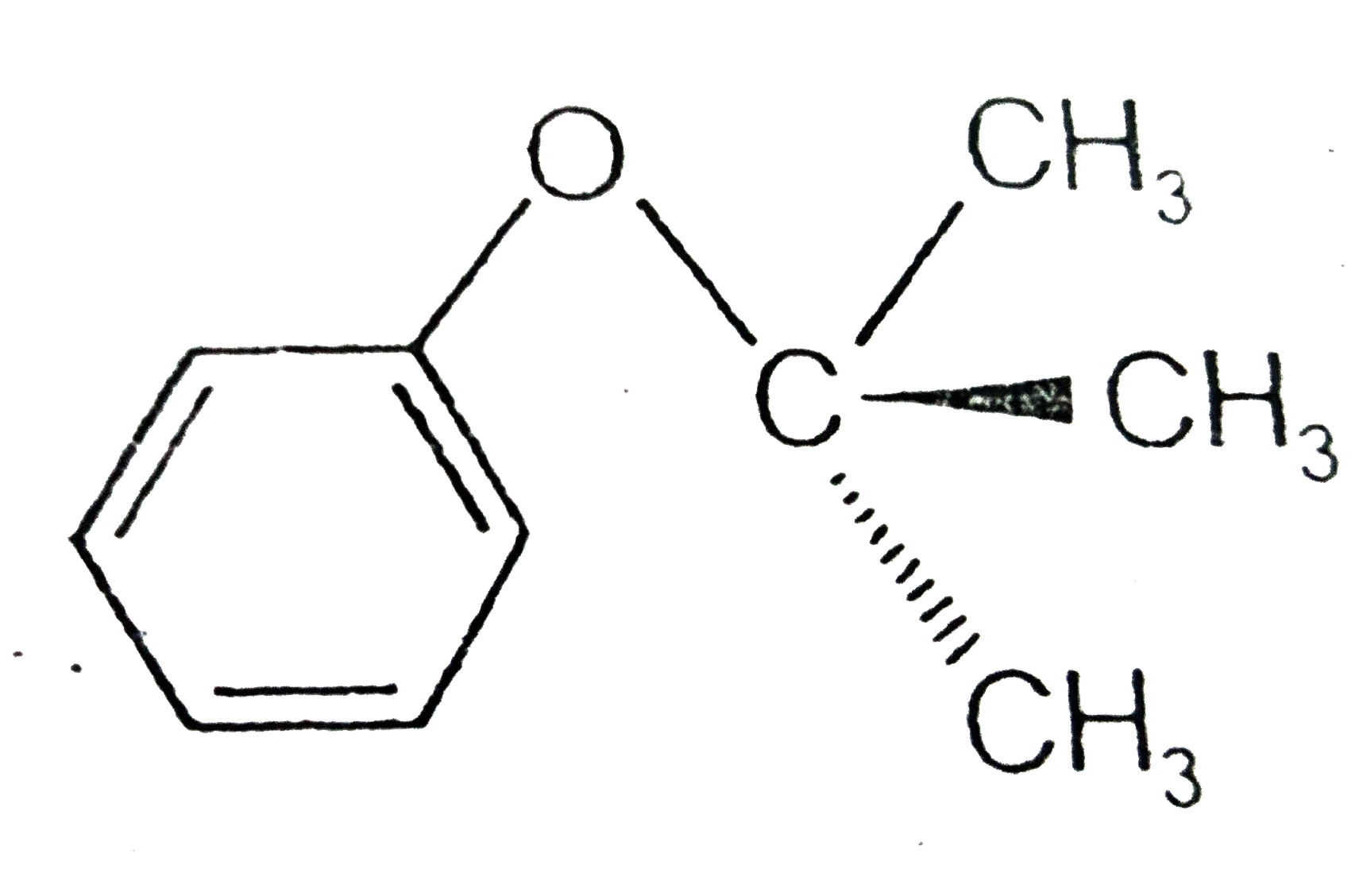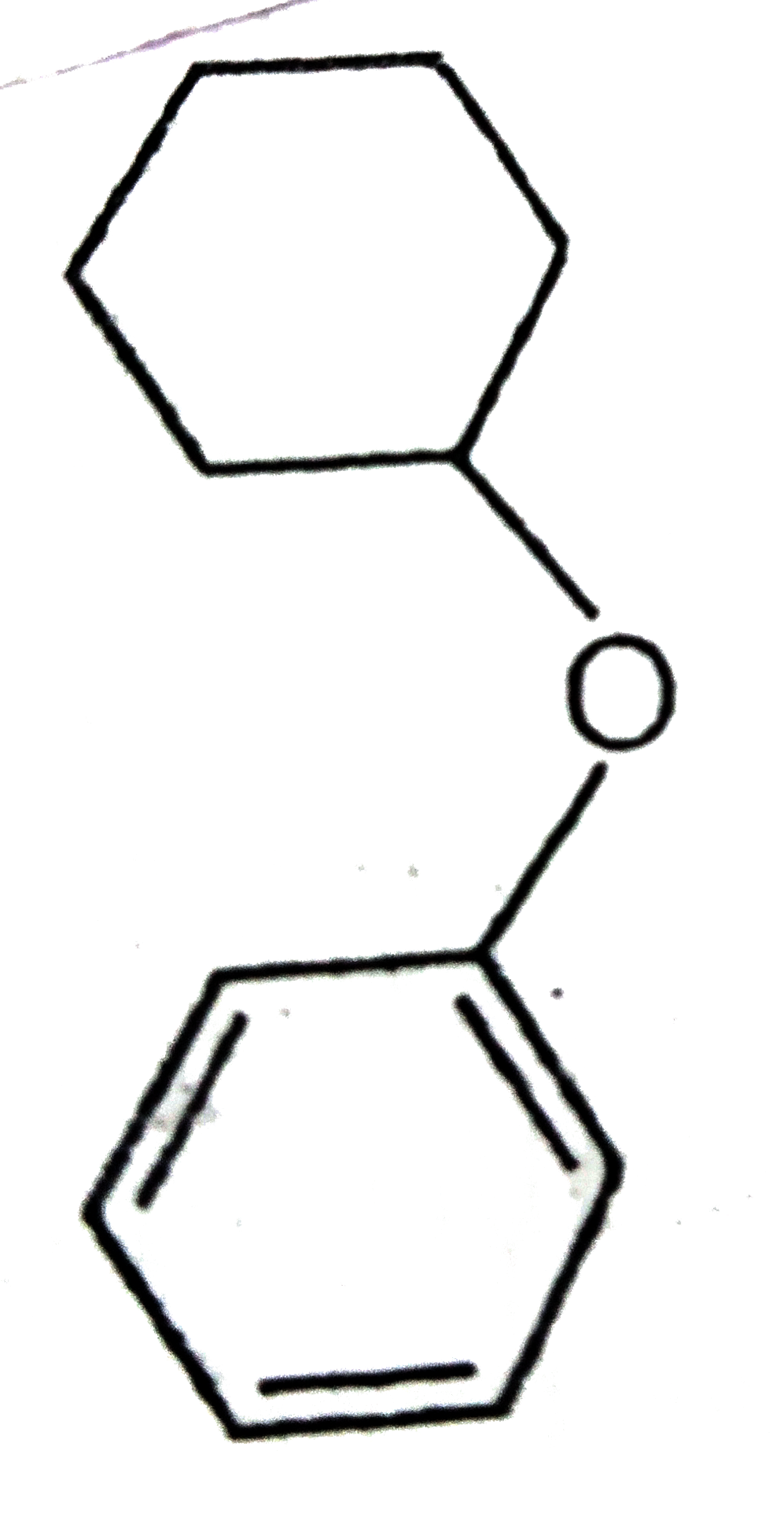Which of the following ethers is unlikely to be cleaved by not conc. HI ?




The correct Answer is:A
To determine which ether is unlikely to be cleaved by concentrated HI, we need to analyze the stability of the carbocation that would form during the cleavage process. Let's go through the options step by step.
Step 1: Understand the Cleavage Mechanism of Ethers
Ethers can be cleaved by acids like HI through a mechanism that involves the formation of a carbocation. The lone pair of electrons on the oxygen atom of the ether attacks the hydrogen in HI, leading to the formation of a positively charged oxonium ion. This ion can then lose an alkyl group as a carbocation, which can be stabilized by electron-donating groups.
Hint: Remember that the stability of the carbocation is crucial for the cleavage of the ether.
Step 2: Analyze Each Ether Option
1. First Option: Benzene-O-CH2-Benzene
- Upon treatment with HI, the oxygen will form an oxonium ion. The resulting carbocation can be stabilized by resonance from the benzene rings. Therefore, this ether can be cleaved by HI.
2. Second Option: Benzene-O-Benzene
- Similar to the first option, the oxonium ion will form. However, the resulting carbocation does not have any alkyl groups to stabilize it, as both sides are benzene. The positive charge cannot be effectively stabilized, making this ether unlikely to be cleaved by HI.
3. Third Option: Benzene-O-CH(CH3)2 (where CH(CH3)2 is an isopropyl group)
- The oxonium ion forms, and the resulting carbocation can be stabilized by the electron-donating isopropyl group. Thus, this ether can be cleaved by HI.
4. Fourth Option: Cyclohexane-O-Benzene
- After the formation of the oxonium ion, the carbocation can be stabilized by the benzene ring. Therefore, this ether can also be cleaved by HI.
Step 3: Conclusion
From the analysis, the ether that is unlikely to be cleaved by concentrated HI is the second option: Benzene-O-Benzene. This is because the carbocation formed is not stabilized effectively due to the absence of electron-donating alkyl groups.
Final Answer: The ether that is unlikely to be cleaved by concentrated HI is Benzene-O-Benzene.
---
Ethers can be cleaved by acids like HI through a mechanism that involves the formation of a carbocation. The lone pair of electrons on the oxygen atom of the ether attacks the hydrogen in HI, leading to the formation of a positively charged oxonium ion. This ion can then lose an alkyl group as a carbocation, which can be stabilized by electron-donating groups.
1. First Option: Benzene-O-CH2-Benzene
- Upon treatment with HI, the oxygen will form an oxonium ion. The resulting carbocation can be stabilized by resonance from the benzene rings. Therefore, this ether can be cleaved by HI.
- Similar to the first option, the oxonium ion will form. However, the resulting carbocation does not have any alkyl groups to stabilize it, as both sides are benzene. The positive charge cannot be effectively stabilized, making this ether unlikely to be cleaved by HI.
- The oxonium ion forms, and the resulting carbocation can be stabilized by the electron-donating isopropyl group. Thus, this ether can be cleaved by HI.
- After the formation of the oxonium ion, the carbocation can be stabilized by the benzene ring. Therefore, this ether can also be cleaved by HI.
From the analysis, the ether that is unlikely to be cleaved by concentrated HI is the second option: Benzene-O-Benzene. This is because the carbocation formed is not stabilized effectively due to the absence of electron-donating alkyl groups.
Similar Questions
Knowledge Check
Which of the following ethers is the most unreactive to cleavage with conc. HBr?
APh−CH2−O−CH3BPh−O−PhC D
D
Which of the following are unlike fractions?
A117,351,317B49,218,59C415,1619,1736Dnone of theseWhich of the following ethers will get hydrolysed by HI ?
A B
B C
C D
D
Which of the following ether is called phenetole?
View SolutionWhich of the following ethers is presents in clove oil ?
View SolutionWhich one of the following is most soluble in ether
View SolutionWhich of the following pairs will not form ether?
View SolutionWhich of the following give ether as a major product -
View Solution
